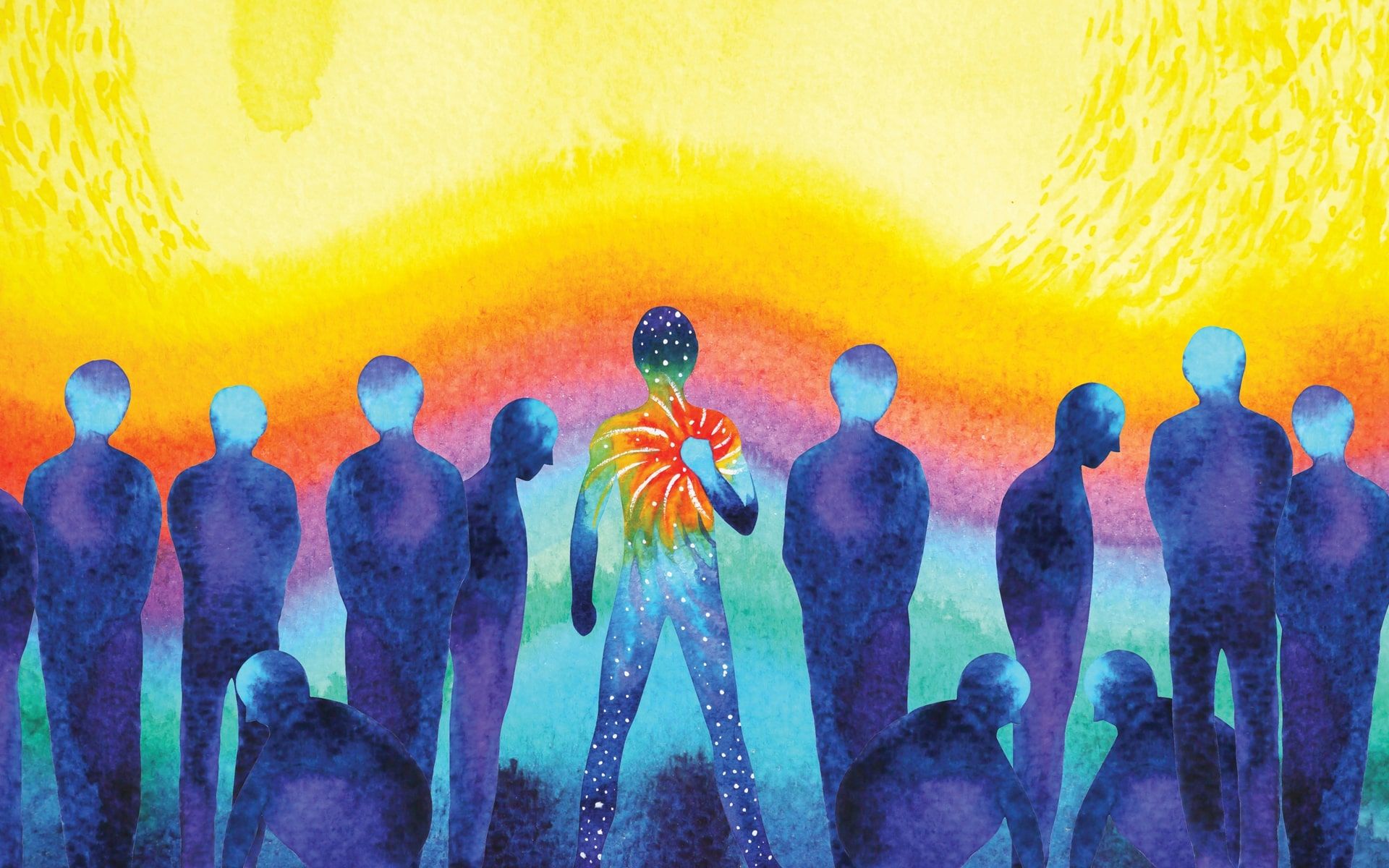Distinguishing (Farq)

In the language of Sufism, farq (distinguishing) has been interpreted as making a clear distinction between unity and multiplicity. To give a longer and more explicit definition, distinguishing means the discernment of the created, despite having perfect knowledge of the Creator, and despite being among people at the same time as being in God’s company. Absorption is marked with knowledge and love of God the Almighty and spiritual pleasures, while it is a distinctive sign of distinguishing that an initiate who has it tries to lead others to the same horizon of knowledge and love of God and spiritual pleasures. For this reason, it has been said that one who does not have distinguishing is imperfect in servanthood to God, and one who does not feel absorption lacks in perfect knowledge of God. This is why one should have both distinguishing and absorption, each of which has a significance of its own. As mentioned before, in the account of absorption, You alone do we worship (1:5) is said to indicate distinguishing, and You alone do we ask for help (1:5) absorption.
Absorption is a subjective state of pleasure, while distinguishing is objective and occurs totally based on the Shari‘a. In absorption, one is under a greater influence from one’s spiritual state and inner depth than from one’s reason and logic, but in distinguishing, reasoning according to the Shari‘a is essential. One can pass into the state of absorption from the state of distinguishing. However, to turn back to the latter from the former means becoming distinguished. Those who remain in absorption are immersed in spiritual pleasures according to the capacity of their spirits and know nothing else. Isa Mahwi expresses this as follows:
One who exists in his non-existence
does not know non-existence while he exists;
Strangers to this state are unaware of the pleasure
in communion with the Beloved.
If one remains in the rank of absorption and is unable to turn back to distinguishing, this means that one has not been able to perceive well what Prophethood is. Ascending is progress, but descending among people after having completed ascension is perfection. An initiate has individual pleasure in absorption and can be an individual mirror to the Divine truths, but distinguishing after absorption denotes a determined attitude, pleasure shared with others and it denotes serving as a comprehensive mirror. Those who have attained such a station are with God and with people; and they discern Him in His manifestations in everything, feel unity in multiplicity, and look at multiplicity from and through unity.
Concerning the relation between distinguishing and absorption, we should also point out the “differentiation in absorption.” This means that heroes of spiritual state and pleasures can discern and observe the All-Holy One Who manifests Himself differently in different mirrors. As for the differences among the mirrors—things or beings and events that receive and reflect God’s manifestations—these are caused by the varying capacities of the mirrors to receive the manifestations.
Distinguishing after absorption is a more sound and perfect state than the former one—distinguishing before absorption. It is the state in which travelers to God cut their heart-felt relations with all else save the Single, Unique One and completely turn to Him to be annihilated in Him. Like annihilation in God and subsistence by God, those who have attained this rank do not discern the world and the things in it, although these exist before their eyes. They live in immersion, with observations made with their insight into the Divine Attributes and Essential Qualities in all things and events, and are lost in the manifestations of unity in the mirrors of multiplicity. Like the stars, which, although they are always there, become invisible when the sun rises—we should set forth for God the most sublime of examples—the heroes of this rank cannot see anything else other than Him from their observatory in the atmosphere of the manifestations of the Essential Qualities and Attributes of the Holy Existence Who is manifest enough to be recognized before all else.
From another perspective, an initiate in absorption is freed from corporeality and the animal dimension of his or her being, or dies with respect to his or her carnal ego, while in distinguishing he or she rises to the level of life that is lived at the level of spirit and heart and gains a new existence with an ego refined or restored by the All-Merciful. In this rank, he or she confesses, “I have lost my carnal ego and attained a new ego from the All-Merciful,” and always expresses the fact that “There is no agent save God,” without excluding the part of their free will in their acts. Being aware of the realities of the Existence and Knowledge that are contained in the degree of certainty based on experience, he or she is enraptured with the observation of the dominion of the All-Living, Self-Subsisting One over everything.
We should point out that, despite all considerations of annihilation and ecstasy, distinction is essential to distinguishing. Heroes of distinguishing are alert at every step of their journey to the fact that, though it is the Creator of causes alone Who creates both humanity and their deeds, they have free will, even though it consists of a relative inclination. They remain mindful that they have been given free will so that they are responsible and accountable for their sins and errors.
With respect to distinguishing, some people have gone to extremes and become mired in deviations. According to these people—may God protect us from believing in such a thing—every person is the creator of his or her own deeds, and human free will has an absolute effect on human actions. Some others hold exactly the opposite view and assert that human free will can play no part in human actions at all in the face of the absolute Divine Will. They suppose that human beings are like dried leaves blown around by winds in the face of an overwhelming, all-compelling will. Those who have adopted the Straight Way, and who have been favored with true perception of the mystery of the Divine Will in Its relation with human free will, have admitted that everything occurs by God’s Will and Power without human free will being excluded. God takes human inclinations or free choice into consideration when determining and creating the actions of humans. Such a belief supports with prayers their inclinations to do good, while also helping them to struggle against their inclinations to do evil by asking God for forgiveness.
The first of the three groups mentioned generally consist of naturalists, materialists and some rationalists who attribute every thing and every event to “natural” causes. They do not admit that anything else exists except what they can see with their eyes and hear with their ears.
Overpowered by the spiritual state in which they find themselves and the pleasures they feel, the second group negate free will and display fatalism, making out that people are like senseless objects.
As for the third group, in addition to seeing God’s Wisdom and authority, creativity and disposal in everything, in their consciousness that stems from their belief, and with their conscious perception, they admit that they have been endowed with a free will, which in reality consists in an inclination. So, without ever confusing the parts of the Divine Will and their own choices with each other in their acts, they are aware of what is meant when they say “I have done it.” In whatever kind or degree of pleasure and immersion they find themselves, they never lose their conviction of this fact.
Our Lord, do not let our hearts swerve after You have guided us, and bestow upon us mercy from Your Presence. Surely You, only You, are the (Munificent) Bestower. And bestow blessings and peace on our master Muhammad, the master of those who ever turn to God in contrition, and on his Family and Companions, the noble, honorable and godly ones.









